
THREAD: market soars cor predicts rise
LifeLine™ Media threads use our sophisticated algorithms to construct a thread around any topic you want, providing you with a detailed timeline, analysis, and related articles.
News Timeline


TRUMP’S “Liberation DAY” Shocks Markets: Wall Street Reels as Tariffs Spark Global Showdown
— President Trump’s “Liberation Day” tariffs have rocked the markets. The Dow dropped more than 2,000 points on some days. The S&P 500 and Nasdaq both fell into bear market territory. These tariffs, reaching up to 125% for some countries, are the highest seen in a hundred years. China, the EU, and Japan are feeling the pain most. China hit back with its own tariffs on American goods. Japan’s finance minister warned of global trouble ahead. Still, US officials say they’re hopeful about future trade talks. Big companies are taking hits too. CarMax shares sank after weak earnings reports. Nvidia tumbled more than 20% from its high point this year. UnitedHealth lowered its profit forecast because Medicare costs keep rising. Experts think this wild ride will last until trade fights settle down. Some industries are holding up better than others under pressure. The Federal Reserve might cut rates three times this year if things get worse — some warn a financial crisis could happen if tariff chaos continues much longer.

TRUMP’S Trade Policy Shocks: US Stocks Plunge in Market Chaos
— The EURO has surged to a six-month high as investors react to the latest U.S. tariff announcements. Meanwhile, the Australian dollar has taken a hit, reflecting global market volatility. These currency shifts highlight ongoing economic uncertainties fueled by international trade tensions.
U.S. stock futures have plummeted after China’s retaliatory tariffs on American goods, marking another phase in the global trade conflict. The Dow Jones dropped 1,679 points, causing widespread concern among investors and financial strategists who urge calm and strategic planning during these turbulent times.
Bitcoin ETFs saw nearly $100 million in net outflows as markets reacted sharply to tariff news from the Trump administration. This exodus underscores investor anxiety and uncertainty about future economic conditions amid escalating trade disputes with China.
Goldman Sachs has revised its oil price forecasts downward due to fears of a potential recession and increased supply from OPEC+. Gold prices have steadied after an initial selloff triggered by aggressive U.S. tariff policies, indicating cautious optimism among investors seeking safe-haven assets in uncertain times.

STOCK MARKET Chaos: US Faces Economic Fears as Tariffs Loom
— U.S. stocks took a nosedive today as President Donald Trump’s “Liberation Day” approaches, bringing potential tariffs on Canadian steel and aluminum imports. Analysts warn these tariffs could trigger a market downturn and increase recession risks. Wolfe Research has already revised U.S. growth estimates for 2025 down to 1.6%.
Retail giant Kohl’s experienced its worst trading day since 1992, with stocks tumbling by 26% after issuing disappointing guidance for the year. Investor anxiety is also heightened by an upcoming House vote on a stopgap funding bill, adding to market volatility.
The Dow Jones Industrial Average has fallen 8.3% from its peak, raising concerns about the tech sector’s performance compared to the S&P 500. Investors are bracing for further shifts as policy decisions unfold in the coming days amid fears of reduced earnings across sectors due to new tariffs and declining consumer confidence.

TRUMP’S Targeted Tarif Plan Ignites Stock Surge
— Global stocks soared on Monday, fueled by gains in U.S. markets. Reports suggest President TRUMP’s tariff strategy is more targeted than expected, boosting investor confidence and risk appetite.
U.S. Treasury yields rose with the optimistic outlook on tariffs. Investors hope a targeted approach will ease potential economic disruptions. The market’s reaction shows strong support for Trump’s strategic trade policy shift.
Meanwhile, the IRS expects a significant drop in tax revenue — over 10% by April 15th — according to the Washington Post. This decline raises concerns about fiscal health and future government funding.
In currency markets, the dollar strengthened against both the euro and yen as U.S. business activity improved in March. Bitcoin analysts predict a potential surge to $110K before any major correction, reflecting ongoing interest in cryptocurrency markets.
:max_bytes(150000):strip_icc()/GettyImages-2204542885-111eebb0d66b4ccdb80baeba920b68a8.jpg)
SENSEX SOARS: 3,000-Point Rally Ignites Investor Hope
— The SENSEX has soared over 3,000 points in just five sessions, marking its best week in four years. This impressive rally is fueled by cooling bond yields and a stronger rupee. Increased foreign investor interest also plays a key role in this upward trend.
Analysts urge investors to stay engaged and see market dips as chances for long-term growth. They warn of short-term volatility that might affect immediate gains. Vinod Nair from Geojit Financial Services highlights that improving domestic indicators are encouraging investors to seize bargains despite global uncertainties.
This surge shows significant market activity and investor sentiment in the Indian stock market. The unusual upward trend suggests optimism among investors amid strong earnings expectations. Staying informed and cautious remains crucial for navigating these financial waters effectively.

HONG KONG Surge Ignites Asian Market Boom
— Hong Kong is leading a major surge in Asian markets, sparking excitement and strong trading. Big gains are seen in Japan, India, and Malaysia. Indonesia trails slightly behind.
This market shift lines up with possible geopolitical changes, including hints from former President Trump about a potential visit from President Xi to Washington DC. Such moves could impact international relations and economic plans.
China’s tech giants like Alibaba and Tencent are seeing big gains thanks to positive domestic consumption outlooks. This growth shows the strength of China’s tech sector amid global uncertainties.
NIO’s partnership with CATL signals more growth in the tech industry, boosting investor confidence across Asia. The collaboration highlights the region’s focus on innovation and technological progress.

GOLD PRICES Soar: How Trade Uncertainty is Shaking Markets
— Gold prices have hit a record high of $2,985 as trade tensions shake up markets. Mixed signals from the Trump administration are fueling fears of a trade-induced recession. Investors are flocking to gold and the Japanese Yen, pushing the metal closer to the $3,000 mark.
The S&P 500 index has seen its first 10% drop from its peak since 2023. Market volatility is increasing, with many stocks showing big daily declines. This correction shows growing uncertainty in financial markets amid ongoing economic challenges.
Despite risks, variable-rate mortgages are attracting borrowers looking for lower initial rates. The current economic climate is influencing mortgage trends and borrower behavior significantly. Homebuyers must weigh potential savings against future rate increases in their financial decisions.
The IRS warns that over one billion dollars in unclaimed tax refunds for 2021 will expire soon if not claimed by April 15, 2025. After this deadline, these funds will revert to the U.S Treasury permanently. Taxpayers should act quickly to claim their refunds before it’s too late.

SENSEX SURGE: Investors Cheer as Market Confidence Grows
— The SENSEX index opened at 74,474.98 on March 9, 2025, marking a positive start to the trading day. This opening was slightly above its previous close of 74,332.58, signaling growing investor trust in the market’s stability.
As trading progressed, the index gained over 350 points, hitting a high of 74,713.17. This upward trend shows optimism among investors and suggests a strong economic outlook for India.
Growth in the SENSEX is often seen as an indicator of economic health and can positively influence global markets. Investors will be closely watching to see if this momentum continues in the coming days.

METAL STOCKS Soar: Investors Cheer Global Demand Boom
— METAL stocks like Tata Steel, Hindalco, and Vedanta are seeing a rise of up to 4% in share prices. This jump is due to favorable global market conditions and increased demand for metals. Investors feel hopeful about the sector’s future.
Tata Steel shares have climbed about 4%, thanks to positive quarterly results and higher production forecasts. Hindalco gains from rising aluminum prices and a brighter outlook as global demand increases.
Vedanta’s shares are also climbing because of strong performance and smart strategies to boost production efficiency. These companies’ gains show broader economic conditions that favor raw material demand.
Market experts point to international trade dynamics, better supply chains, and more infrastructure spending worldwide for this bullish trend. These factors boost investor confidence in METAL stocks amid growing global need for raw materials.

INDIA’S Real Estate Boom: Why Buyers Shouldn’T Panic
— The real estate market in INDIA is seeing a big rise in prices across major cities. But experts say buyers shouldn’t lose hope.
There are still chances for buyers to get good deals because the market might cool down, not crash.
This year is a special time for buyers to use their bargaining skills well. For more insights, watch “Let’s Get REal with Manisha Natarajan.”

XRP PRICE Soars: Trump’s Bold Crypto Move Shakes Market
— XRP’s price jumped by 30%, hitting $2.75 after finding support at $2.00. This rise follows talk about its possible inclusion in a US Crypto Reserve.
President Trump suggested the US might add XRP, ADA, and SOL to a national crypto reserve along with Bitcoin and Ethereum. This could change the cryptocurrency world dramatically.
Analyst “Dark Defender” predicts XRP could reach $77.7 soon, showing growing investor hope. These forecasts highlight how government-backed crypto plans might affect market trends.
:max_bytes(150000):strip_icc()/GettyImages-2192142603-a439d21d07ef4ace9708e5f08f188b0b.jpg)
CHINA’S Tech Boom: How Deepseek AI is Shaking Global Markets
— China’s tech industry is booming, thanks to the rise of the DeepSeek AI model. Major companies like Alibaba, Baidu, and Xiaomi are seeing big benefits. This surge has pushed Hong Kong’s Hang Seng Tech Index up this year.
Alibaba, co-founded by Jack Ma, stands out in this market rally. The company’s growth shows the broader impact of tech advancements on China’s economy. Investors are watching these changes for possible global effects.
The rise in China’s tech stocks might affect U.S. investments and international trade ties. As U.S. markets close with small changes in the S&P 500, global investors keep an eye on shifts in Chinese tech trends.
This ongoing rally highlights China’s growing influence on worldwide economic dynamics, making it a key player to watch in global markets.

GOLD PRICES Soar: Trump’s Trade Policies Spark Investor Panic
— Gold prices are reaching near record highs after President Donald Trump announced new tariffs on major trading partners like Canada, China, and Mexico. Analysts predict gold could soon hit an all-time high of $2,850 an ounce as these tariffs stir up market volatility.
Peter Cardillo from Spartan Capital Securities noted that central banks are quickly buying gold due to worries about inflation and economic stability. This rush to gold shows investor fear amid the uncertainty caused by the tariff announcement.
Trump’s trade policy aims to boost U.S. industries but has raised concerns about possible retaliatory actions from affected countries, complicating global trade dynamics. The financial community is closely watching the impact of these tariffs as international tensions rise.
Market analysts expect commodity prices, especially precious metals, to stay volatile in response to ongoing geopolitical and economic changes. Investors should stay informed as the situation unfolds rapidly.

GOLD PRICES Skyrocket: Trump’s Bold Tariffs Spark Investor Panic
— Gold prices have soared to nearly $2,950 per ounce after President Trump announced new tariffs on steel and aluminum imports. Investors are rushing to gold, seeing it as a safe haven amid fears of a global trade war. This surge shows rising concerns about market instability and potential economic fallout.
The tariffs have caused big swings in both commodities and stock markets, with gold seeing the most dramatic rise. Analysts caution that these actions might lead to retaliation from other countries, making international trade relations even more complex.
Investors are keeping a close eye on U.S.-China trade talks since any changes could affect gold’s future path in the market. The situation is still developing, leaving many worried about the wider effects on global economic stability.

TECH GIANTS Spark Stock Market Surge: What Investors Need to Know
— The STOCK MARKET is seeing a surge, with predictions of a 0.49% rise. This optimism comes from major tech companies, whose earnings reports are expected to beat estimates. Investors are eagerly awaiting these results, fueling excitement across the market.
However, concerns about rising interest rates could dampen this enthusiasm. While the outlook remains positive now, potential rate hikes might impact investor sentiment soon. Market participants stay cautious as they navigate these mixed signals.
Besides stock market news, debates continue over a new lunch plan proposed by a coalition that may affect small businesses’ futures. Stakeholders are split on the possible effects of these changes, highlighting ongoing challenges in balancing economic growth with regulations.

TRUMP’S Trade WAR Ignites Gold Rush And Market Turmoil
— Gold prices have hit a record high as investors flock to safe assets amid President Donald Trump’s new tariffs. These measures target imports from Canada, China, and Mexico, sparking worries about inflation and economic growth. JP Morgan is optimistic about gold, urging investors to buy during this dip.
Wall Street braces for losses due to fears of an escalating trade war from Trump’s tariff actions. The 25% tariffs on Canada and Mexico and 10% on China may cause “short-term” pain for Americans, according to Trump. Global markets watch cautiously as these policies unfold.
Oil prices are climbing in response to the tariffs, while metal and agricultural commodities face pressure downward. The financial landscape is shifting with markets adjusting to a potential prolonged trade conflict led by the U.S., causing the dollar to gain strength amid global trade uncertainty.

GOLD PRICES Soar: Trump’s Trade Moves Spark Investor Panic
— Gold prices soared to a record $2,800 on Friday as investors sought safety amid tariff threats from President Trump. His remarks have sparked concerns about potential economic impacts.
The uncertainty surrounding tariffs has driven demand for gold, a traditional safe-haven asset. Investors fear that any major trade moves could weaken the U.S. dollar, making gold more attractive.
Analysts also note that increased buying by jewelers and retailers ahead of the marriage season contributed to the price surge. These factors combined have led to unprecedented highs in gold prices.

GOLD PRICES Soar: What You Need to Know About Plunging US Yields
— Gold prices climbed for the second day, fueled by falling U.S. yields and hints of easing core inflation. Investors are keeping a close eye on upcoming U.S. retail sales data, unemployment claims, and Federal Reserve announcements for more market insight.
The stock market saw a big lift after a surprisingly good consumer inflation report. The Dow surged 700 points while the Nasdaq jumped 2.5%. This shows optimism even though there are worries about high rates affecting stock performance.
Financial powerhouses Goldman Sachs and JPMorgan started the earnings season strong with impressive trading revenues, boosting the S&P 500’s financial sector to its best day in two months. Citigroup announced a $20 billion share buyback program as it tackles rising regulatory costs and compliance issues.
The U.S. dollar was volatile as traders analyzed inflation data showing core inflation dipped slightly from 3.3% to 3.2%. Market players await more direction from the Federal Reserve on interest rate policies amid these economic changes.
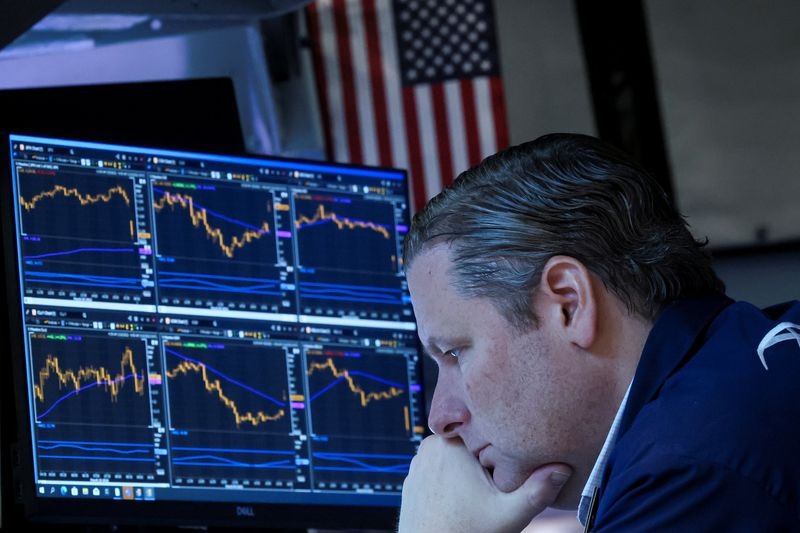
STOCK MARKET Chaos: Inflation Fears Shake Investor Confidence
— The U.S. STOCK market took a big hit today, with major indexes dropping over 3% due to rising inflation fears. Investors worry about possible Federal Reserve policy changes after high inflation numbers came out earlier this week. This is one of the steepest drops in months, shaking confidence that had been boosted by strong job reports.
Bond yields are up, with the 10-year Treasury bond yield hitting about 4.1%, its highest since late 2023, signaling increased inflation expectations. Big tech stocks like Apple and Microsoft saw sell-offs over 5%, adding to the market slump. Analysts warn that ongoing inflation might push the Federal Reserve to rethink interest rate policies, possibly leading to more hikes instead of cuts.
The decline comes after a strong holiday shopping season that initially suggested steady economic growth but is now overshadowed by ongoing inflation problems. Retail and consumer sectors face rising costs and reduced spending, making investors cautious in these areas. Companies like Walmart and Target report higher holiday sales but shrinking profit margins due to inflation pressures, prompting them to rethink annual forecasts.
Banks like JPMorgan are bracing for possible loan defaults as consumers struggle with higher living costs by setting aside more reserves. Market analysts expect continued volatility as investors digest new inflation data and Fed policy implications.;

WALL STREET Surges: Oil Price Drop Sparks Investor Optimism
— Wall Street is climbing today, driven by a 6% DROP in oil prices. Investors are gearing up for a crucial week of earnings reports from major tech firms.
Tech and energy stocks are leading the way, with analysts hopeful about tech giants’ futures. However, there is still caution about the overall economic outlook.
The fall in oil prices comes from oversupply worries and easing geopolitical tensions, affecting inflation rates and consumer spending that Wall Street closely monitors.
While U.S. markets rise, Asian markets face recession fears linked to U.S. economic performance, showing global interconnectedness and financial volatility.

— Tesla Stock Soars 22% on Musk’s Bold 2025 Growth Forecast The electric vehicle giant experienced its best trading day in over a decade following CEO Elon Musk’s optimistic projections for future growth

— S&P 500 RISES NEARLY 1% as Cooler Oil Prices Boost Market The Dow gained 100 points, reflecting positive investor sentiment amid declining oil prices

— S&P 500 SOARS to NEW RECORD CLOSE The index surged as traders sought to capitalize on the momentum from recent Federal Reserve interest rate cuts

— Stocks Stage Impressive Recovery, Recouping Weekly Losses: Market closes higher, bouncing back significantly from Monday’s sell-off
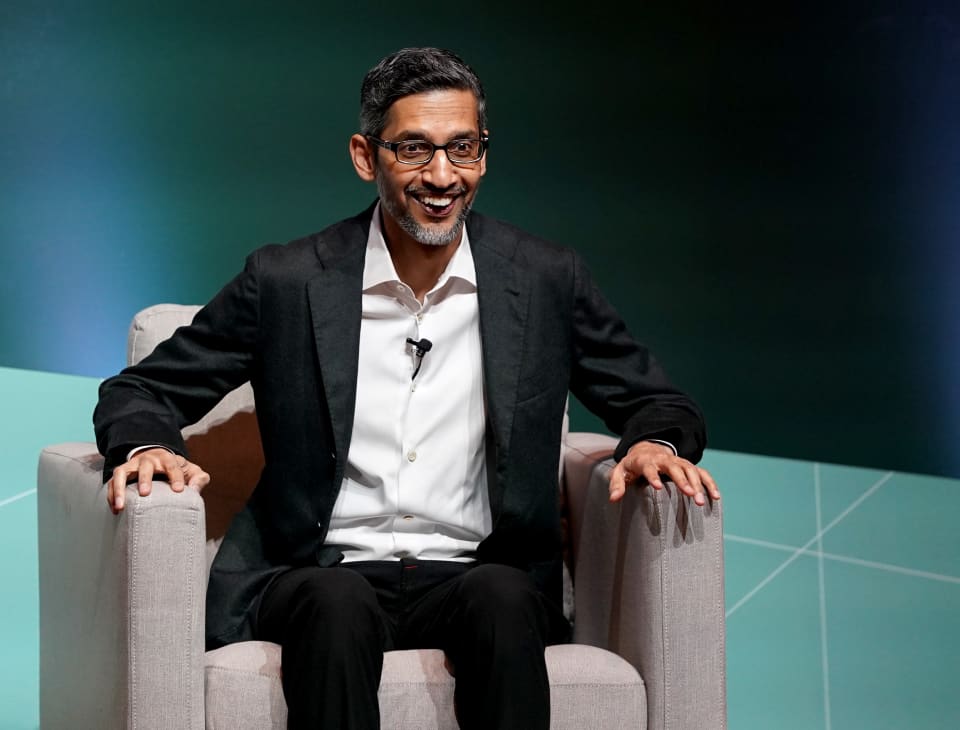
— Alphabet Stock Surges: 14% Increase Post Strong Earnings and Debut Dividend

Video
BRITISH PM’S Bold Housing Plan: 15 Million Homes to FIX Crisis
— British Prime Minister Keir Starmer has announced a plan to tackle the UK’s housing crisis by building 1.5 million homes over the next five years. This initiative aims to address the severe shortage of housing and create jobs in the construction sector.
The plan includes government-led projects and incentives for private developers, focusing on sustainable urban planning and energy-efficient homes. This aligns with broader goals to reduce carbon emissions and combat climate change.
Critics question whether the government can secure adequate funding and navigate bureaucratic challenges to achieve this ambitious goal. Despite these concerns, the government cites past successes in large-scale infrastructure as evidence of its capability.
More Videos
Invalid Query
The keyword entered was invalid, or we couldn't gather enough relevant information to construct a thread. Try checking the spelling or entering a broader search term. Often simple one-word terms are enough for our algorithms to build a detailed thread on the topic. Longer multi-word terms will refine the search but create a narrower information thread.
Politics
The latest uncensored news and conservative opinions in US, UK, and global politics.
get the latestLaw
In-depth legal analysis of the latest trials and crime stories from around the world.
get the latest
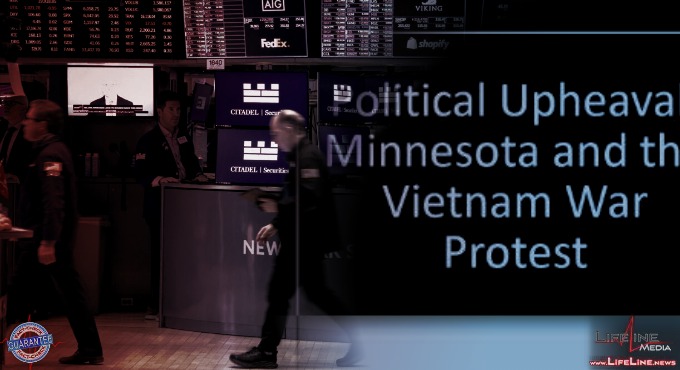
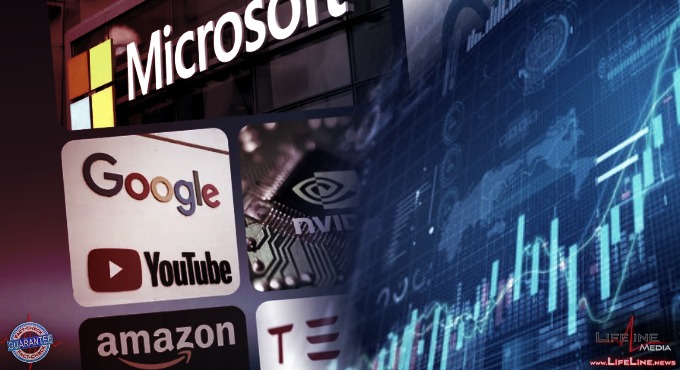
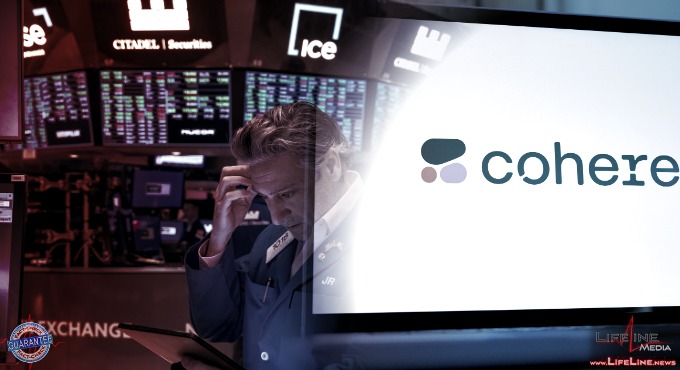



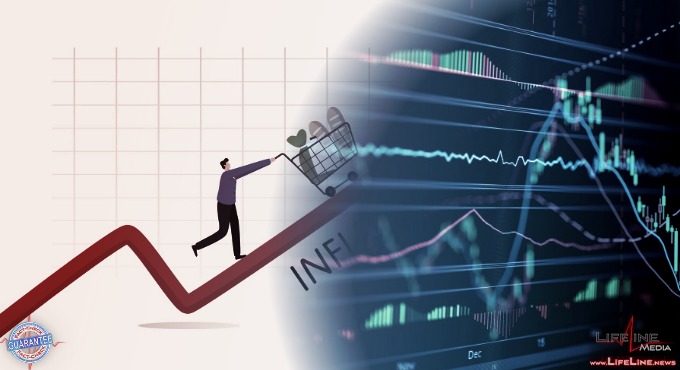
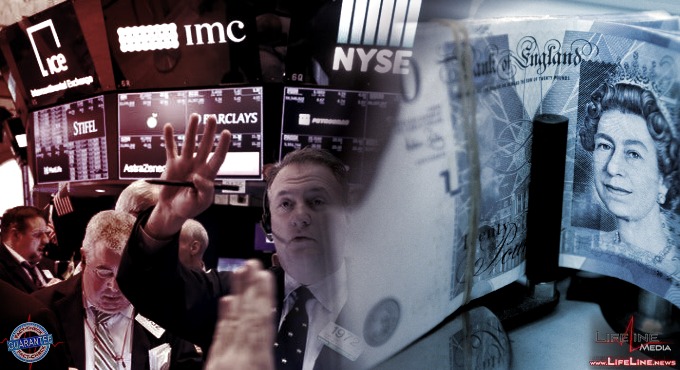
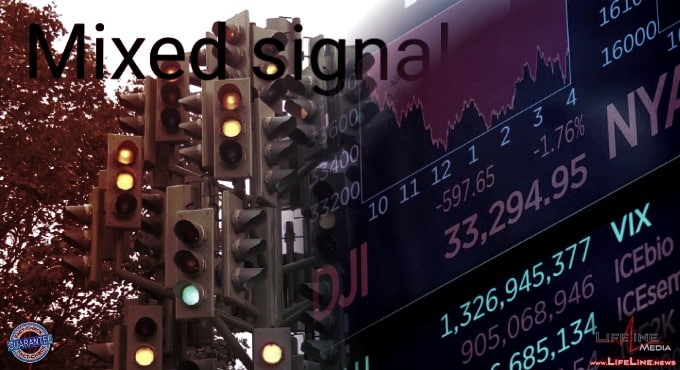
Social Chatter
What the World is SayingFutures Market. Futures Market how does the futures market look today SPY, Euro, Gold, Crude Oil, Natural Gas, Corn [Futures (stockbuyvest.com)](https://stockbuyvest.com/index.php/en/world-markets/futures) The S&P futures price is an indication of market sentiment and investor expectations about the futur...
. . .https://youtu.be/rguHublkxCQ?si=9b_S0IXBQWwdWvVS The US stock market is in the biggest bubble in history. The entire economy is at risk. Geopolitical Economy Report 458K subscribers 618,152 views 3 Jan 2025 The US stock market is in "the mother of all bubbles", with the market capitalization of pu...
. . .Futures Market. Futures Market how does the futures market look today SPY, Euro, Gold, Crude Oil, Natural Gas, Corn [Futures (stockbuyvest.com)](https://stockbuyvest.com/index.php/en/world-markets/futures) The S&P futures price is an indication of market sentiment and investor expectations about the futur...
. . .Futures Market. Futures Market how does the futures market look today SPY, Euro, Gold, Crude Oil, Natural Gas, Corn [Futures (stockbuyvest.com)](https://stockbuyvest.com/index.php/en/world-markets/futures) The S&P futures price is an indication of market sentiment and investor expectations about the futur...
. . .News; Analysis & Opinion. MSCI World News. Find the latest financial news about the MSCI World. Citi expects rally in global stocks to extend into 2025, sees 10 ...
. . .